Hyundai i30 vs Renault Express – Differences & prices compared
Compare performance, boot capacity, efficiency and price at a glance.
Find out which car is the better choice for you – Hyundai i30 or Renault Express?
Costs and Efficiency:
Price and efficiency are key factors when choosing a car – and this is often where the real differences emerge.
Renault Express has a decisively advantage in terms of price – it starts at 17100 £, while the Hyundai i30 costs 24000 £. That’s a price difference of around 6866 £.
Fuel consumption also shows a difference: Renault Express manages with 4.60 L and is therefore distinct more efficient than the Hyundai i30 with 5.70 L. The difference is about 1.10 L per 100 km.
Engine and Performance:
Under the bonnet, it becomes clear which model is tuned for sportiness and which one takes the lead when you hit the accelerator.
When it comes to engine power, the Hyundai i30 has a noticeable edge – offering 140 HP compared to 102 HP. That’s roughly 38 HP more horsepower.
In acceleration from 0 to 100 km/h, the Hyundai i30 is noticeable quicker – completing the sprint in 9.60 s, while the Renault Express takes 11.90 s. That’s about 2.30 s faster.
In terms of top speed, the Hyundai i30 performs a bit better – reaching 197 km/h, while the Renault Express tops out at 167 km/h. The difference is around 30 km/h.
There’s also a difference in torque: Hyundai i30 pulls slight stronger with 253 Nm compared to 240 Nm. That’s about 13 Nm difference.
Space and Everyday Use:
Beyond pure performance, interior space and usability matter most in daily life. This is where you see which car is more practical and versatile.
Seats: Hyundai i30 offers convincingly more seating capacity – 5 vs 2.
In curb weight, Hyundai i30 is barely noticeable lighter – 1291 kg compared to 1296 kg. The difference is around 5 kg.
In maximum load capacity, the Renault Express performs significantly better – up to 3300 L, which is about 1999 L more than the Hyundai i30.
When it comes to payload, Renault Express clearly perceptible takes the win – 700 kg compared to 509 kg. That’s a difference of about 191 kg.
Who wins the race?
The Hyundai i30 proves to be edges out slightly and therefore becomes our DriveDuel Champion!
Hyundai i30 is the better all-rounder in this comparison.
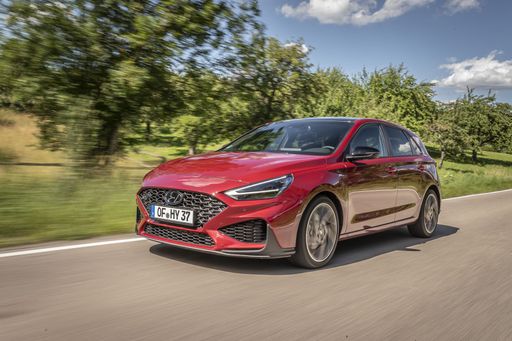
Hyundai i30
Hyundai i30
The Hyundai i30 stands out in the hatchback segment with its sleek design and modern features. It offers a comfortable ride with a well-crafted interior that caters to both driver and passengers. With its emphasis on safety and technology, the i30 provides a balanced driving experience suitable for urban and suburban environments.
details @ hyundai.news
@ hyundai.news
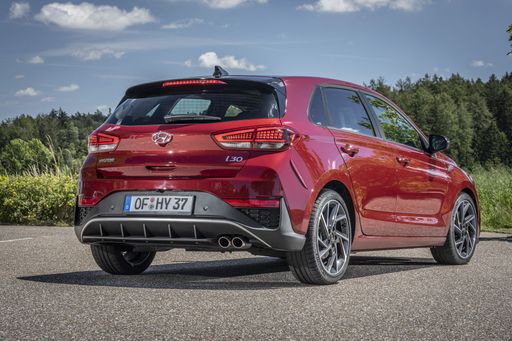 @ hyundai.news
@ hyundai.news
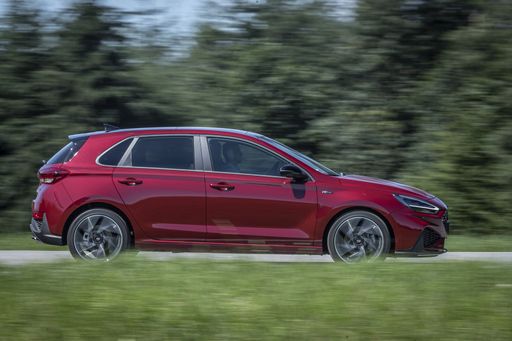 @ hyundai.news
@ hyundai.news
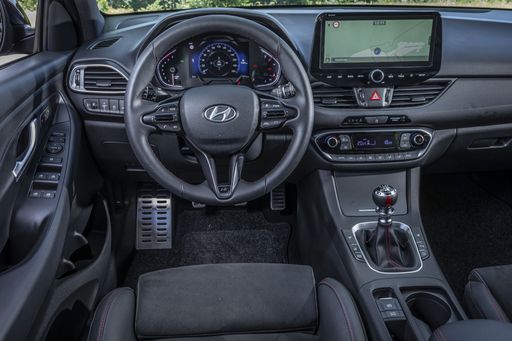 @ hyundai.news
@ hyundai.news
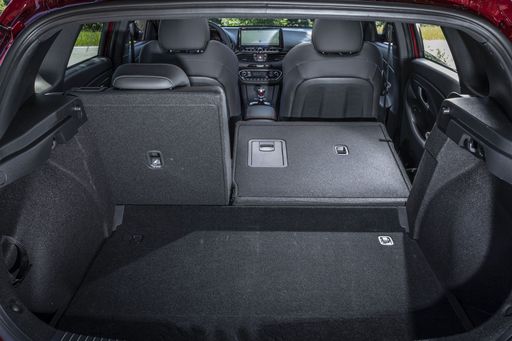 @ hyundai.news
@ hyundai.news
Renault Express
The Renault Express brings a fresh design to the van segment, combining practicality with modern styling cues. Its spacious interior and clever storage solutions make it an ideal choice for both business and leisure purposes. With a focus on comfort and functionality, this vehicle stands out as a versatile option for those in need of reliable transportation.
details

|
|
|
|
|
Costs and Consumption |
|
|---|---|
|
Price
24000 - 29300 £
|
Price
17100 - 19500 £
|
|
Consumption L/100km
5.7 - 6 L
|
Consumption L/100km
4.6 - 6.6 L
|
|
Consumption kWh/100km
-
|
Consumption kWh/100km
-
|
|
Electric Range
-
|
Electric Range
-
|
|
Battery Capacity
-
|
Battery Capacity
-
|
|
co2
130 - 136 g/km
|
co2
121 - 149 g/km
|
|
Fuel tank capacity
50 L
|
Fuel tank capacity
50 L
|
Dimensions and Body |
|
|---|---|
|
Body Type
Hatchback
|
Body Type
Cargo Van
|
|
Seats
5
|
Seats
2
|
|
Doors
5
|
Doors
4
|
|
Curb weight
1291 - 1407 kg
|
Curb weight
1296 - 1390 kg
|
|
Trunk capacity
395 L
|
Trunk capacity
-
|
|
Length
4340 mm
|
Length
4393 mm
|
|
Width
1795 mm
|
Width
1775 mm
|
|
Height
1455 mm
|
Height
1811 mm
|
|
Max trunk capacity
1301 L
|
Max trunk capacity
3300 L
|
|
Payload
463 - 509 kg
|
Payload
575 - 700 kg
|
Engine and Performance |
|
|---|---|
|
Engine Type
Petrol, Petrol MHEV
|
Engine Type
Diesel, Petrol
|
|
Transmission
Manuel, Automatic
|
Transmission
Manuel
|
|
Transmission Detail
Manual Gearbox, Dual-Clutch Automatic
|
Transmission Detail
Manual Gearbox
|
|
Drive Type
Front-Wheel Drive
|
Drive Type
Front-Wheel Drive
|
|
Power HP
100 - 140 HP
|
Power HP
75 - 102 HP
|
|
Acceleration 0-100km/h
9.6 - 13.1 s
|
Acceleration 0-100km/h
11.9 - 16.3 s
|
|
Max Speed
178 - 197 km/h
|
Max Speed
100 - 167 km/h
|
|
Torque
172 - 253 Nm
|
Torque
200 - 240 Nm
|
|
Number of Cylinders
3 - 4
|
Number of Cylinders
4
|
|
Power kW
74 - 103 kW
|
Power kW
55 - 75 kW
|
|
Engine capacity
998 - 1482 cm3
|
Engine capacity
1332 - 1461 cm3
|
General |
|
|---|---|
|
Model Year
2024
|
Model Year
2021
|
|
CO2 Efficiency Class
D, E
|
CO2 Efficiency Class
D, E
|
|
Brand
Hyundai
|
Brand
Renault
|
What drive types are available for the Hyundai i30?
Available configurations include Front-Wheel Drive.
The prices and data displayed are estimates based on German list prices and may vary by country. This information is not legally binding.
